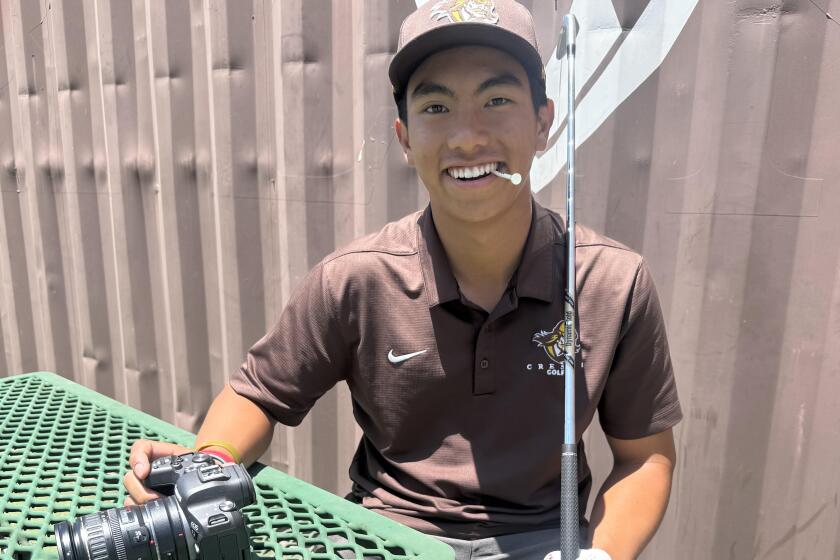Bennett Wouldn’t Compromise Standards
- Share via
Basketball practice for City Section schools begins on Tuesday, and for the first time in 14 seasons, Al Bennett won’t be guiding the team at Lake Balboa Birmingham High.
Publicly, he resigned in September because he needed more time for himself.
Privately, he has been fuming over the deteriorating standards associated with coaching high school basketball.
“I feel corrupted,” he said. “I don’t think you can be in this sport and not be corrupted.”
Bennett, 57, has seen 11 students transfer from Birmingham to other schools in the last two years.
“I’m the fall guy, I’m the rotten guy,” he said.
Bennett has been known as a disciplinarian. He doesn’t want players to fire off three-point shots in rapid fashion. In fact, many of his teams were required to pass the ball several times before taking a shot. What a concept.
The challenge was convincing players influenced by others to change their ways. Some refused and left. Others adapted. At all times, Bennett insisted he cared about his players.
“I’ve done my absolute best to work with kids and make them better people and better teams,” he said. “It breaks my heart to see a kid leave my program when I know I can help them and he leaves for all the wrong reasons.”
The school gave its full support to Bennett.
“He’d still be our coach today if he wanted to,” Athletic Director Rick Prizant said.
But Bennett could no longer put up with the negatives, even though the positives of trying to help teenagers succeed remained a powerful lure.
He expressed frustration at “the way the game is being played and because of the recruiting and because the way parents are and the selfishness of the kids.”
“I don’t think kids are learning good values,” he said. “I have worked my butt off, and I believe if every one of those kids had stayed, they would have been better kids for it.”
Howard Levine, the coach at Van Nuys Grant, has known Bennett for more than 20 years. Levine, who will be starting his 17th season, said coaching high school basketball has changed.
“You’re going against influences you have no control over,” he said. “You’re going against a street-ball mentality that is ruining the game at all levels. You talk to college guys and pro guys and they say the same, ‘The game isn’t as good as it once was.’
“You go with the flow and bend a little bit. You still have ballplayers playing as a team, willing to play defense. You bend a little bit for individuals with off-the-court actions. You have to take each individual by themselves because they’re leading different lives away from the basketball court.”
One former Birmingham player called Bennett “a great defensive coach,” but he complained that Bennett didn’t help him or others get a college scholarship.
And that’s a big problem for coaches today. Many of their players think they’re talented enough to play for a big-time college and can’t accept the fact they might be good high school players, but nothing more.
Tell players the truth and sometimes it’s sayonara. They’ll find another coach who believes in them or tells them what they want to hear.
Every coach wants to help players realize their dreams, not take them away.
Every coach wants to help players become better. The question is how far should a coach go to make it happen?
Nicholas Hauselman, a former Birmingham assistant, expressed dismay at Bennett’s departure.
“More attention should be paid to the coaches that have given of themselves in the pursuit of educating young men to become good people first, good basketball players second,” Hauselman said.
“These are the coaches that should be celebrated, respected and praised. These are also the coaches who are becoming extinct in favor of a new breed of coaches hellbent on sacrificing ethics for wins.”
There are plenty of ethical coaches who have no plans to quit. They intend to stick with their principles and values in an effort to make sure their players are better for it.
*
Eric Sondheimer can be reached at eric.sondheimer@latimes.com
More to Read
Get our high school sports newsletter
Prep Rally is devoted to the SoCal high school sports experience, bringing you scores, stories and a behind-the-scenes look at what makes prep sports so popular.
You may occasionally receive promotional content from the Los Angeles Times.







